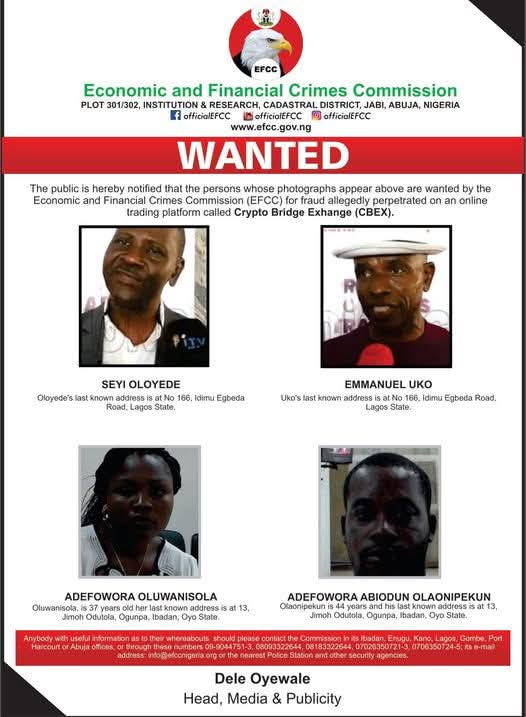I think it is time for the spotlight to be beamed in the direction of media houses over their role in enabling some of the scams, in the name of investment opportunities, that have seen many Nigerians losing their money.
Without a doubt, greed is the major factor for both scammers and victims, one only being smarter than the other.
With a culture of unexplained and unexplainable wealth increasingly entrenched, many more have become convinced that financial breakthrough can only come through looting of public or private, sogundogoji, gambling, black magic, ‘miracle’, or a combination of some/all.
With social media as an enabler, scam artists are getting to all sorts in plain sight, coming up with all sorts of schemes. Even as some of us never get to know about these schemes until they bust, it never ceases to amaze me how it is that patrons are never in short supply, given how difficult times have been for decades and the ceaseless cry of ‘no money’.
One might wonder where the billions invested in MMM, CBEX, Chinmark, Ovaioza and other schemes came from, but given the depth and robustness of the Nigerian informal sector, the quantum of money regularly put into these ponzi and investment schemes should not come as a surprise. There is so much money in the informal sector, the shadow economy, trapped therein by a combination of mistrust for the formal system and financial illiteracy.
That is why the media, especially the traditional media – Radio, TV and newspapers (print and online) have a huge role to play. Reports out there have it that the promoters of the CBEX scheme invested massively in radio, using popular presenters (OAPs) and programmes to push their message. I hear this was the plot in the Western States (Oyo, Osun, and possibly others) where they made a huge inroad.
A gentleman is currently in the news for reasons to do with his mentorship and investment schemes, with all sorts of allegations being levelled against him. Now, this gentleman has been a rather ‘frequent’ guest on one of the Breakfast shows on TV, obviously having paid for ‘Apperance’. Yet not once was his ‘appearance’ ever labelled as ‘sponsored’ or a disclaimer issued that was was being aired was an ‘infomercial’. But anyone perceptive enough would have seen the Anchors on the programme falling over themselves with patronising and leading questions for the gentleman.
The idea is that the TV Station, programme and Anchors lend their credibility to whatever claim their guest makes and the schemes he promotes on the programme. The unsuspecting viewer who cannot tell what a ‘promotional’ from ‘News’, is misled and might make investment decisions based on what he has heard, exercising trust in the Television House, expecting it to have done its due diligence before bringing the guest on the programme. Unfortunately, that might not be the case.
Ordinarily, what I have seen this TV Station doing (possibly others too) is not only unethical, it is against the Broadcasting Code. But obviously the Regulator is so overwhelmed that all sorts now make it on air in the name of broadcasting, especially the Radio. If what goes on in the name of presentation on radio stations in the major cities is anything to go by, one can only imagine what is going on beyond there. One can only imagine the free rein the OAPs and the Scam Artists with their ponzi schemes must have had in selling their wares.
Social media is bad enough, being an all-comers affair, the traditional media cannot do away with ethics and professionalism in the name of ‘looking for money’ by lending their platforms to all manner of people to come sweet-talk Nigerians into parting with money they don’t have under the guise of doubling their fortune, or is it misfortune.
The ISA already provides for influencers to go in along with promoters of these schemes, media houses who make their platforms available for the promotion of these schemes should be made to take responsibility as well. Maybe when one of the victims decides to file a suit against some of these media houses, they will begin to take seriously their ‘duty of care’, knowing that the liability they expose themselves to is not worth what some of these people pay to burnish their image.





